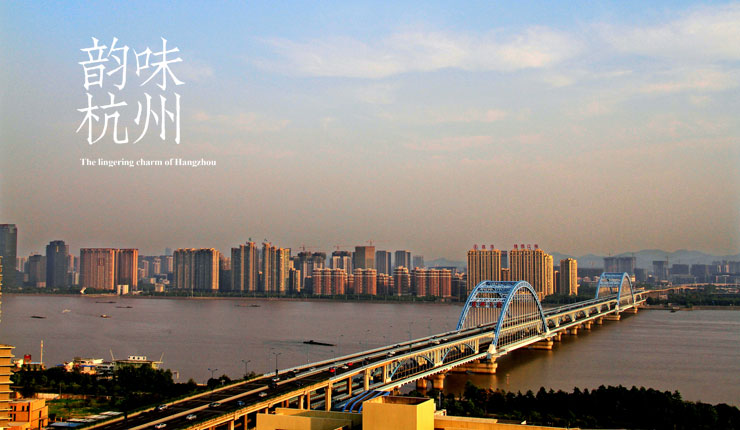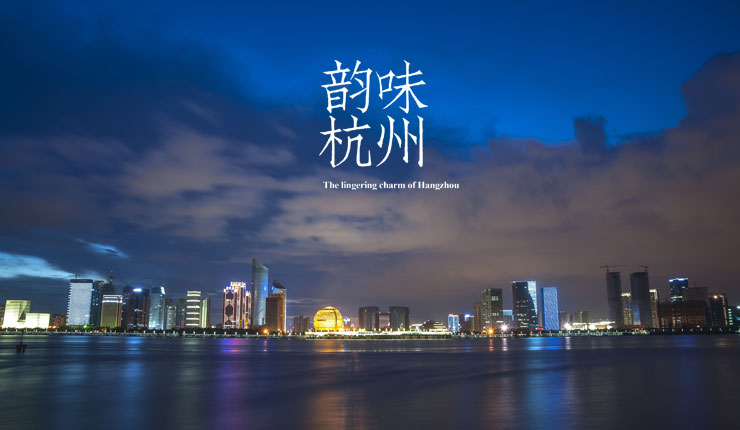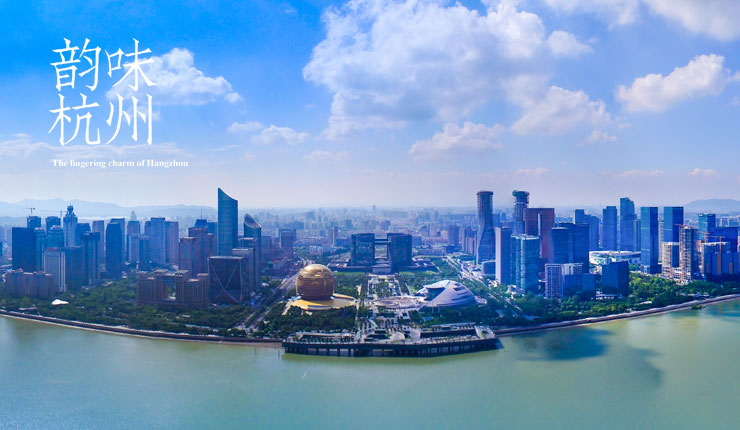
The Qiantang River was originally known as Zhe River (Zhejiang), which served as the inspiration for the name of Zhejiang Province. It is the largest river in the province with its lower course flowing 93 kilometers before reaching Hangzhou Bay and emptying into the East China Sea.
The Qiantang River tidal bore is a natural wonder of the world. Together with the Amazon and the Ganges, the Qiantang River has been internationally recognized as carrying one of the three strongest tidal bores in the world. The tradition of viewing the Qiantang River tidal bore in Hangzhou dates back more than 2,000 years.
In the nine centuries since the Southern Song Dynasty (1127-1279), Hangzhou has expanded outward from West Lake. Beginning in the 21st century, the expansion of Hangzhou’s urban areas has proceeded along the banks of the Qiantang River.

Qiantang Tidal Bore is one of the three largest tidal bores of the world. It is the combined result of the centrifugal effect of gravitation of celestial body and earth rotation, and the special terrain of bell-mouthed Hangzhou Bay. “Tides after tides I see on the Qiantang River, and all of a sudden they are roaring before my eyes. Contained in the common water is great power that shakes earth and heaven.” When the tides come, “white silk” appears on the river. As the thunder rumbles, the tides become closer and closer in a high speed. Suddenly, a water wall of 3 or 4 meters high stands upright on the river, just like ten thousand horses galloping ahead. Tide bore watching started from Han and Wei Dynasty and thrived in Tang and Song Dynasty. It has become a local custom during the past 2,000 years.
(Source: Official website of the Qiantang River Administration of Zhejiang Province )




